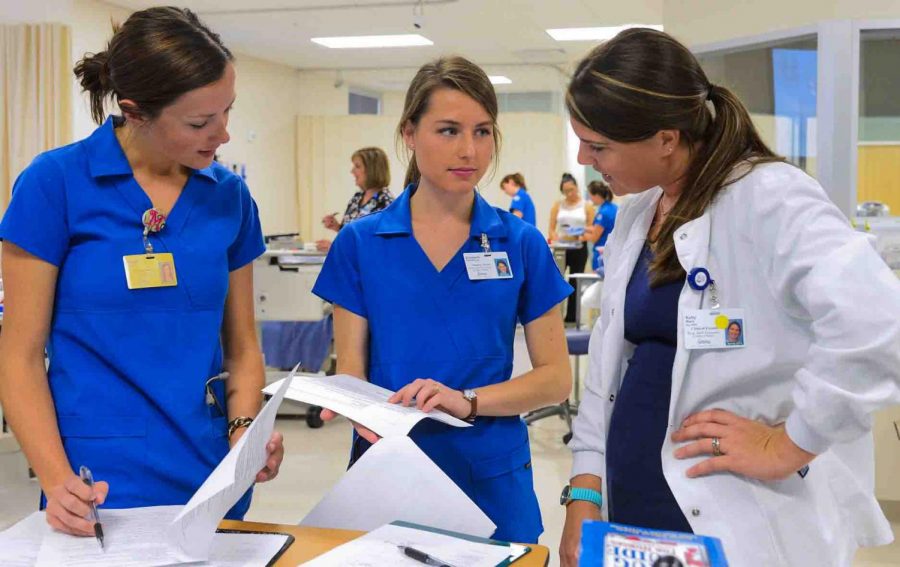Grant will help WSU graduate more nurses
$2.5 million fund to train medical personnel for rural areas
Dr. Janet Purath, WSU College of Nursing associate professor, said nurses are vital to the healthcare needs of rural communities. The WSU-ANEW-2 grant they received will allow them to address the lack of healthcare providers in those areas.
September 11, 2019
The WSU College of Nursing is graduating more students who will work in rural and underserved areas where nurse practitioners are in high demand.
The WSU-ANEW-2, “Advanced Nursing practice in rural & underserved Eastern Washington,” grant was awarded to the WSU College of Nursing by the U.S. Health Resources & Service Administration, associate professor Dr. Janet Purath said.
The specific focus of this grant is to award aspiring students with scholarships and get them the training they need to be successful, she said.
The grant totals approximately $2.5 million, almost double the previous WSU-ANEW grant they received, Purath said.
During the first year, the college is receiving about $627,000, with $400,000 of that going directly to the students, she said. Students are given scholarships that range from $11,000 to $22,000 a year.
Purath said the grant also helps recruit and train clinical preceptors, who are healthcare professionals dedicated to providing valuable teaching and learning experiences to the students.
“They [clinical preceptors] are a real critical piece to our student education because what they do in clinics is give students one-on-one clinical education experience of taking care of patients,” Purath said.
Rural areas depend on nurse practitioners, who are vital to maintaining people’s healthcare needs, she said. If students are trained in a specific area, they are more likely to go on to practice in those areas when they graduate.
Purath said she is hopeful that this follow-on grant will get rid of the lack of healthcare providers in rural and underserved areas, and bring attention to the ongoing problems of substance abuse disorders.
“There aren’t enough providers of any type, and nurse practitioners kind of fill a gap for those providers, because they can provide care to people just as a physician can,” Purath said. “This grant also wants us to educate our students more on how to approach substance use disorders, which is a problem in all areas, not just rural and underserved.”















